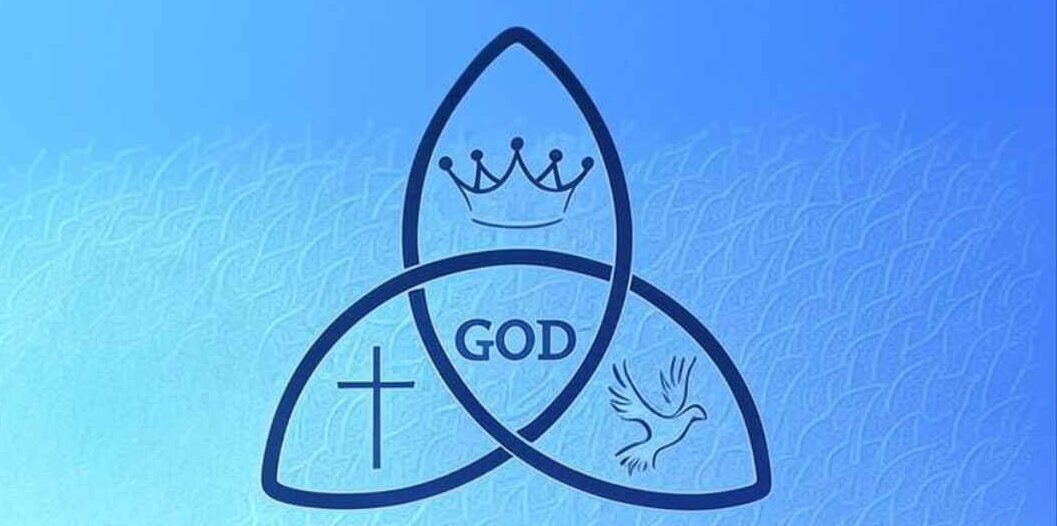Today, I want to drag you into something that sounds like it escaped a seminary dungeon: the doctrine of inseparable operations. I know it’s not one of those trendy topics to you. And to some, it is Latin. I hadn’t heard of it either until about three years ago. It’s the kind of phrase that makes you wonder if theologians are just playing hard to get (oops! Sorry, I mean hard to understand). Veracity Fount was hosting a conference, or to be more exact, a webinar, and the speaker was Adonis Vidu. When I heard him, I smelled a rat. I remember asking several questions in the Zoom chat. I don’t remember exactly what I asked (my memory is a bit rusty there), but his answers left me more suspicious than satisfied. So, what’s this doctrine all about? Is it a scam? And why should we care when we’d rather have the pastor entertain us?
You might be wondering why this topic feels so new. It’s rarer than a smooth road in Kampala. I’ve seen two open manholes people stumble into: some lean toward worshipping three gods (tritheism/polytheism), while others slide into modalism, thinking the Father, Son and the Holy Spirit are just one person with three different outfits. Both fall outside of how Christians have historically understood the Trinity. So, I’m here to share what I’ve picked up over the years. I’m not an expert, I’m just someone who’s been curious (or rather suspicious) and digging.
This doctrine is often wrapped in jargon so dense it could choke a goat, but I’m all about simplifying things. Like that old saying, KISS: Keep It Simple, Stupid. I want to keep it simple to the best of my ability. No one puts it better than Augustine:
There is no point in speaking at all if our words are not understood by the people to whose understanding our words are directed. The teacher…will avoid all words that do not communicate…he will use words that are less correct, provided that the subject-matter itself is communicated and learnt correctly.1
So with that in mind, let’s break this down as simply and clearly as we can without dumbing it down to the point of insulting your intelligence.
What’s the Doctrine of Inseparable Operations?
The doctrine of inseparable operations says that when it comes to anything God does with creation, all three persons of the Trinity (Father, Son, and Holy Spirit) are all in it together. Said differently, what God does, all of God does. There are no benchwarmers. You may have heard people say the Father creates, the Son saves, and the Spirit sanctifies. There’s some truth there, but it’s lazy oversimplification. The Son and the Spirit aren’t sitting on the sidelines counting the stars as the Father is at work. They’re all in. Whether it’s creating the world, saving your soul, or keeping you from making a fool of yourself. The dead theologians put it like this: opera Trinitatis ad extra indivisa sunt (fancy Latin for “the Trinity’s external works are undivided”).
They didn’t make this up. It’s there in the black and white of every Bible. Let me read you mine: In John 5:19, Jesus is chatting with some folks who were out for his blood because He called God His Father. He says:
Truly, truly, I say to you, the Son can do nothing of His own accord, but only what He sees the Father doing. For whatever the Father does, the Son does likewise.
Jesus is saying He never goes rogue. What the Father does, the Son is doing too.
Then there’s 1 Corinthians 12:4-6:
Now there are varieties of gifts, but the same Spirit; and there are varieties of service, but the same Lord; and there are varieties of activities, but it is the same God who empowers them all in everyone.
Even spiritual gifts which we often credit to the Spirit, involve the whole Trinity. What about creation? Genesis 1:2 shows the Spirit hovering over the waters and John 1:1-3 tells us the Word (Jesus) was there at the beginning creating everything. No one is left out.
What About Jesus’ Human Experiences?
Now you might be thinking: if the Father, Son, and Spirit all do everything together, does that mean they all became human?
No. And here’s why.
While the Trinity works together in every divine work, they do so according to their personhood. For example, in the incarnation, the Father didn’t become human. The Spirit didn’t become human. The Son did. But that doesn’t mean the others weren’t involved. The Father sent, the Spirit effected conception, and the Son was born.
So why does the Bible often highlight just one person in certain acts? Because those actions bring one person into the spotlight. Cool folks call it “appropriation.” For instance, creation shows the Father as the source of all things, incarnation (humanization) reveals the Son as the one who came to make the Father known, and sanctification highlights the Spirit who applies the work of Christ in us.
At Jesus’ baptism, all three persons show up: the Father speaks, the Spirit descends, and the Son is baptized. Each one participates in a unique way.
You might whine: if all the persons act together, did the Father and Spirit also experience hunger, ignorance, and fatigue? When Jesus died, did the whole Trinity kick the bucket?
Fair question.
The answer lies in understanding Jesus’ two natures. Jesus was hungry according to His human nature, not His divine one. The divine nature didn’t get hungry or tired. But the Son, as a man, did. The Son alone took on human flesh. The Father and Spirit did not.
Here’s a helpful analogy (though like all analogies, it has limits): Imagine two houses. One is the divine nature. All three persons “live there.” The other is the human nature. Only the Son “moved in.” The Son lives in both houses, but the Father and Spirit don’t share the second one.
Internal Relations vs. External Works
Let’s clear up one more thing. This doctrine is about God’s external works (what the Trinity does toward creation). That’s where they are inseparable. But internally, within God Himself, there are distinctions. The Athanasian Creed puts it well:
The Father was neither made nor created nor begotten from anyone. The Son was neither made nor created; he was begotten from the Father alone. The Holy Spirit was neither made nor created nor begotten; he proceeds from the Father and the Son.
These aren’t “works” like creating or saving. They’re about how the Triune persons exist eternally. English doesn’t always do this justice, but these are active, eternal relationships, not tasks.
Why This Matters
Getting this doctrine right keeps us from falling into the sewers of modalism (thinking the trinity is just one person in different costumes) or tritheism (worshiping three gods). Modalism is a problem in the circles of folks like Chris Oyakhilome and T.D. Jakes. It leads one to conclude that the Father and the Spirit were crucified along with Jesus, which isn’t what Scripture says. Tritheism and polytheism, pop up when we stop thinking of the Triune Persons as one indivisible God. It is this poisoned malwa that the Jehovah’s (or better: Satan’s) Witnesses have drunk. There’s also the idiotic notion that the Old Testament was the Father’s time, the Gospels were the Son’s, and now it’s the Spirit’s era. I pity such a people whose God(s) are on holiday. It misses the whole point of inseparable operations.
Conclusion
I hope this makes the doctrine of inseparable operations feel a bit less like a theological headache. It’s not just head knowledge but it should reboot your worship, knowing that whenever we praise the Son, we are never separating Him from the Father and the Spirit. Their works are united and so should be our worship. The doctrine also keeps us grounded in what Scripture actually teaches and helps us avoid deceptive ideas. For you bookish types, I’ve included a few brainy reads in the footnotes.2 For now, I hope this ignites you and leaves you reverently amazed at the great God we worship.
1 Augustine in On Christian Teaching
2 Recommendations:
Adonis Vidu, The Same God Who Works All Things: Inseparable Operations in Trinitarian Theology
Matthew Barret, Simply Trinity: The Unmanipulated Father, Son, and Spirit



